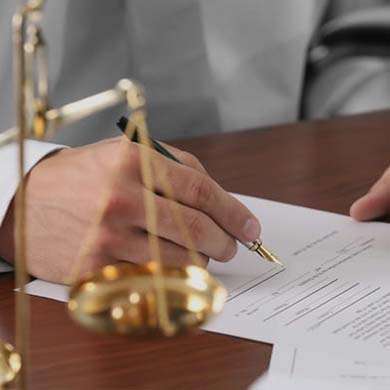Clients Reviews

4.9 / 5 based on 237 user ratings.
Clients Reviews

4.9 / 5 based on 237 user ratings.
We help you to
Does Someone Owe You Money? Recover Monies Owed!
We Research, Prepare, File Your Case in Small Claims Court Massachusetts.
In Massachusetts, the Small Claims Court is a special court that handles cases involving disputes between individuals or businesses where the amount of money at issue is $7,000 or less. The goal of the Small Claims Court is to provide a simple and affordable way for people to resolve their disputes without the need for an attorney. Small Claims Court cases in Massachusetts are heard in the District Court, but the procedures and rules are simpler and more informal than those in regular court. There is no jury in a Small Claims Court case, and the judge makes the final decision. To file a Small Claims Court case in Massachusetts, the plaintiff (the person bringing the case) must fill out a form called a "Statement of Claim." This form is available online or at the District Court Clerk's office. The plaintiff must also pay a filing fee, which varies depending on the amount of money being claimed.

The person or entity bringing the claim is known as the plaintiff, while the person or entity defending against the claim is known as the defendant. The plaintiff can file a small claim against an individual, a business, or a government agency. Examples of disputes that can be resolved through Small Claims Court include unpaid rent, unpaid bills, property damage, and breach of contract. The defendant in a Small Claims Court case has the right to dispute the claim and present their own evidence and arguments. They may also file a counterclaim against the plaintiff if they believe they have a valid claim against the plaintiff. It's important to note that Small Claims Court cases are intended to be resolved quickly and inexpensively, without the need for attorneys. However, either party may choose to hire an attorney to represent them in court if they wish.
Whether or not you should file a small claims case in Massachusetts depends on your specific situation and whether it is worth the time, effort, and expense to pursue legal action. Some factors to consider when deciding whether to file a small claims case in Massachusetts include:
Ultimately, whether or not to file a small claims case in Massachusetts is a personal decision that requires weighing the potential benefits and costs of pursuing legal action. It may be helpful to consult with an attorney or a legal aid organization to help you make an informed decision.


In Massachusetts, a small claims court trial is a relatively informal proceeding where the parties present their case to a judge. Here's what generally happens during a small claims court trial in Massachusetts:
It's important to note that small claims court procedures can vary depending on the specific court and judge involved. It may be helpful to familiarize yourself with the rules and procedures of the specific court where your case will be heard.
Being on time is important in any legal proceeding, including small claims court in Massachusetts. It's important to arrive at the courthouse early so you have time to find parking, go through security, and locate the courtroom where your case will be heard. In Massachusetts, small claims court cases are usually scheduled for a specific time and date. If you are late for your scheduled hearing, the judge may dismiss your case, which could result in you losing your claim or being unable to defend against the other party's claim. This is especially important if you are the plaintiff, as you initiated the lawsuit and may not have another opportunity to bring your claim. In addition, being punctual shows respect for the court and the judge, and can help establish credibility and trust with the judge hearing your case. It's also important to be prepared for your hearing and have all necessary documents and evidence ready to present to the judge.
In Massachusetts small claims court, presenting your claim or defense is a critical aspect of the trial process. Here are some tips for effectively presenting your case in small claims court:
If you have any questions about how to present your case or need legal advice, consider consulting with an attorney or legal aid organization.
In Massachusetts small claims court, a judgment is a final decision made by the judge at the end of the trial. The judge will review all the evidence and testimony presented by both parties before rendering a decision. If the judge rules in favor of the plaintiff, the defendant may be ordered to pay the plaintiff a specific amount of money or take other actions to remedy the situation. If the judge rules in favor of the defendant, the plaintiff's claim will be dismissed. Once the judgment is made, both parties must comply with the decision. If the defendant does not comply with the judgment, the plaintiff may take steps to enforce the judgment, such as filing a wage garnishment or placing a lien on the defendant's property. It's important to note that either party has the right to appeal the decision to a higher court within a certain timeframe, usually within 30 days of the judgment. If an appeal is filed, the case will be reviewed by a higher court and a new decision will be rendered.
If you are considering starting a small claims lawsuit in Massachusetts, here are the steps you will need to take:
It may be helpful to consult with an attorney or legal aid organization for guidance on how to prepare and file your small claims case in Massachusetts.
If you are planning to file a small claims lawsuit in Massachusetts, you will need to fill out and file the appropriate forms with the court. Here are the most commonly used forms in Massachusetts small claims court:
These forms can be found on the Massachusetts court website or obtained from the court clerk's office. It's important to fill out the forms completely and accurately and to submit them on time to avoid delays or dismissal of your case.
Thanks Small Claim Filing. I extremely suggest Small Claims Filing affordable paper preparation solutions for any person who desires quick efficient as well as economical solutions. They do the job and assisted me with my separation as well as my little girl custodianship. Now my divorce is done in 4 months and also I have my child full protection, by the help of God as well as Small Claim Filing.
Small Claim Filing was advised to me by a buddy. I rejoice I took my friend's guidance. I maintained Small Claim Filing and they right away took control of the case. He and his staff maintained me updated, calm, as well as less-stressed offered the situations of the scenario. I trusted Small Claim Filing would steer me in the appropriate direction, as well as I was not wrong. I am much happier with how the case turned out and would suggest them to any person seeking Court.